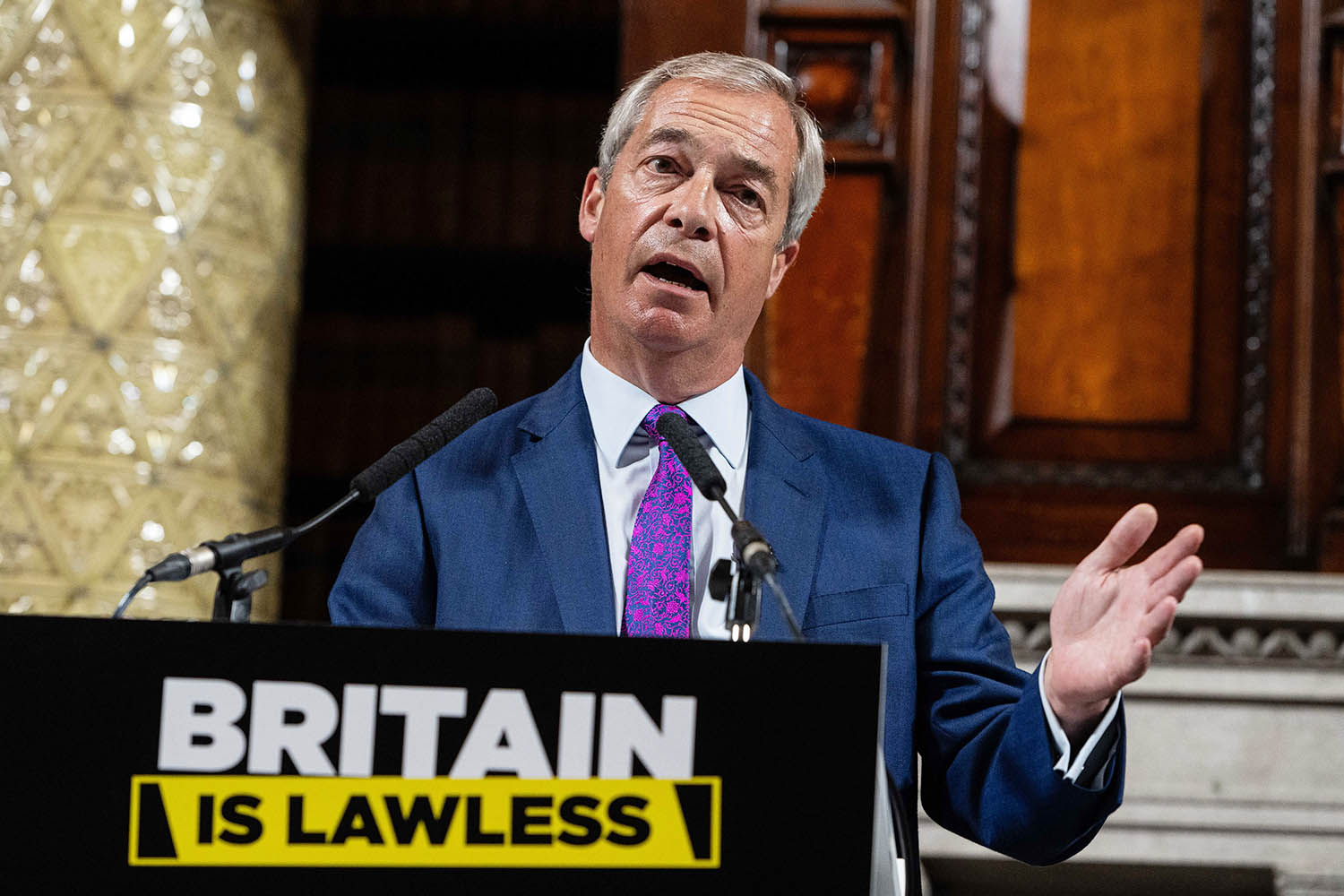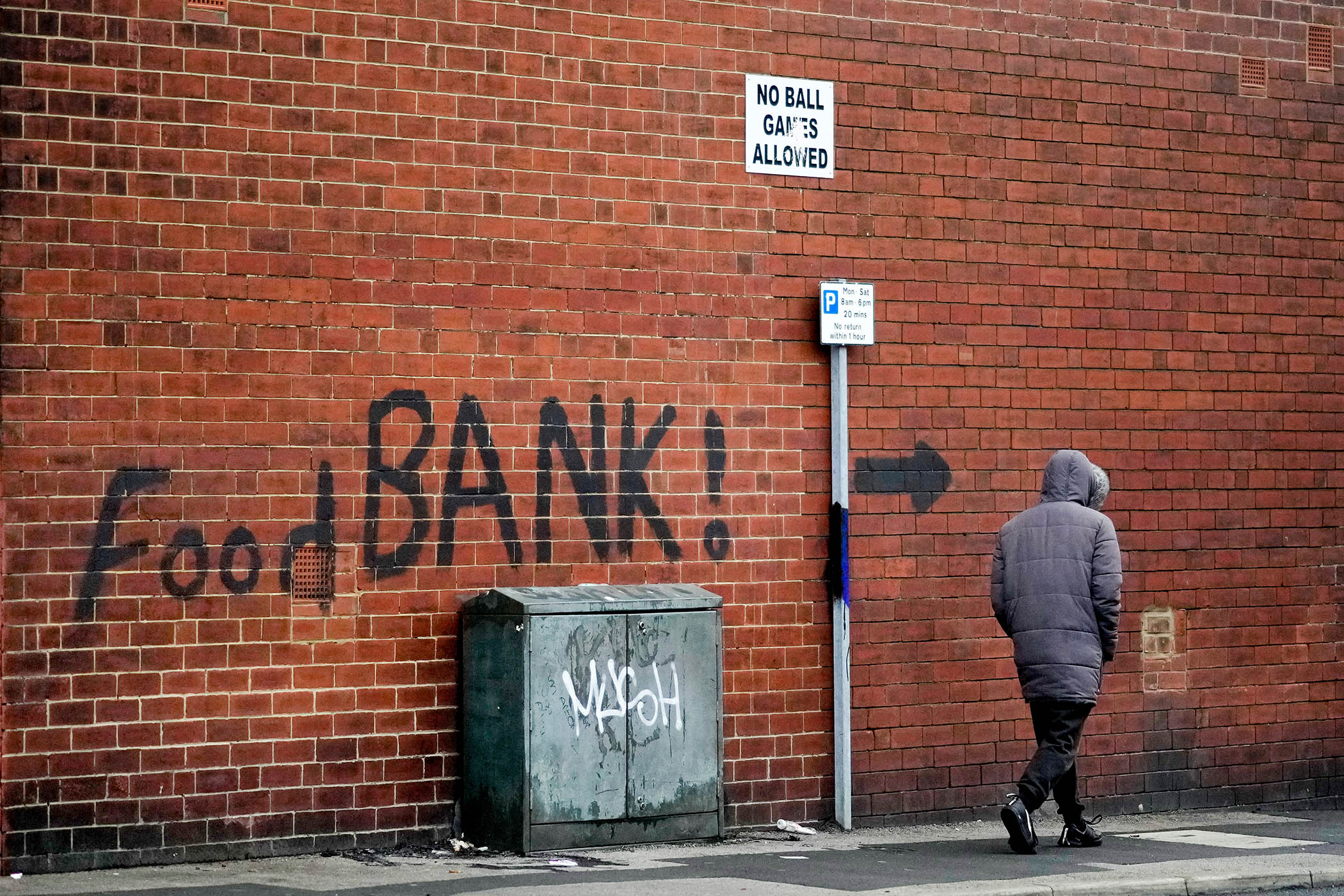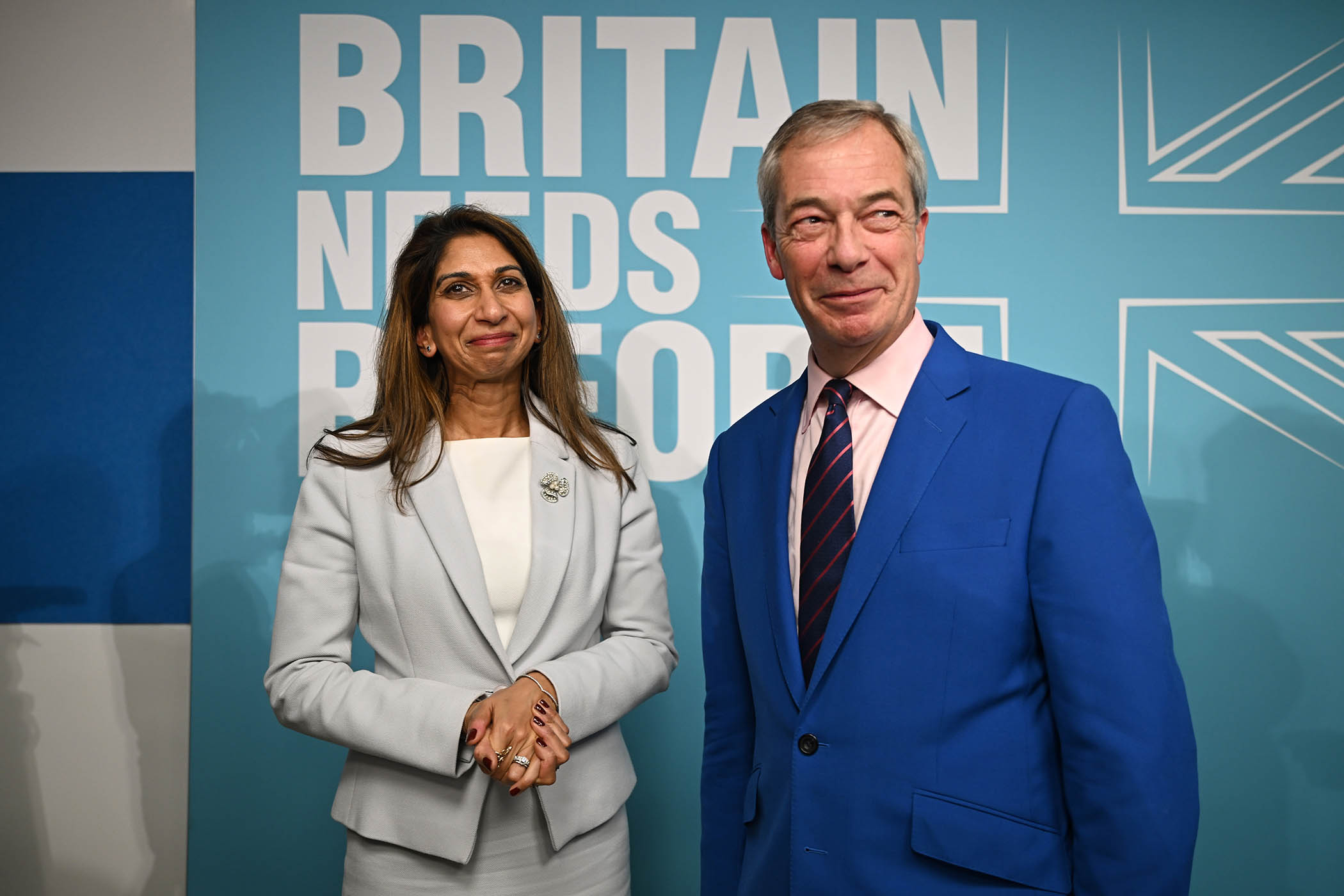Told that there’s been a gas leak in the building, Nigel Farage is the guy who fires up a cigarette. There’s no situation so combustible that he can’t contrive to try to make it more frightening.
Witness the things he has had to say about the protests in Epping outside a hotel used to house asylum-seekers. Many of the protesters are locals, unhappy that the hotel is in their neighbourhood and angry that one of the inhabitants has been charged with the alleged sexual assault of a teenage girl, which he denies. Far-right agitators have swarmed to the site. On the other side are some anti-fascist and pro-refugee counter-demonstrators. The leader of Reform UK piled into this highly delicate situation by making the attention-seeking assertion that we are getting close to “civil disobedience on a vast scale in this country”. There was a further excursion into extreme hyperbole when he claimed that “lawless” Britain is “facing nothing short of societal collapse”. He added: “I don’t think anybody in London even understands”, retailing the sly trope that a cocooned metropolitan elite is entirely oblivious to what is happening in the rest of the country.
We can start unpacking this by saying that reasonable people will agree that Britain is not a happy place. Nervousness about a repeat of the racial violence seen on the streets last summer is unsettling the cabinet. At the most recent meeting of senior ministers, Angela Rayner gave the headlines of the government’s investigation into those disturbing events. The inquiry cites economic insecurity, polarising online sites and immigration as among the factors fraying social cohesion. Ms Rayner told her colleagues that 17 out of the 18 areas worst affected by last summer’s disorder were among the country’s most deprived. Some have found it odd that Downing Street briefed out the deputy prime minister’s remarks. My hunch is that they want to suggest that senior ministers are aware of tensions and have plans for addressing them. But “civil disobedience on a vast scale”? “Nothing short of societal collapse”? Unless I am entirely mistaken about my country, Britain is not about to descend into the anarchic Fury Road dystopia feverishly predicted by the leader of Reform, presumably because he thinks that kind of apocalyptic demagoguery plays to his political advantage. This is Trump-like “American carnage” stuff. Not at all British.
The great patriot and self-styled champion of law and order also launched an inflammatory attack on Essex police for supposedly “bussing” leftwing counter-demonstrators to the protest in Epping. Police are generally reluctant to tangle with politicians, but in this case the Essex constabulary bluntly retorted that this was untrue. Officers provided a foot cordon around people walking to the demonstration. Some people at risk of being hurt were later escorted away by vehicle for their safety. “We categorically did not drive any counter-protesters to the site on any occasion.” The force’s chief constable exhorted people not to spread disinformation because it has “real-world consequences”.
The chief constable is right. Words matter. The language used by prominent politicians can cool confrontations and draw incensed folk back from the brink. Words can also feed febrility and stoke fears. No one knows this better than Mr Farage. He has held elected office for more than 25 years, but he has never been in government. His extremely influential career has been built entirely on words. He has a formidable capacity to garner clicks and airtime, aided by elements of the legacy and online rightwing media. His latest burst of fearmongering has attracted more attention in what we used to call the Tory press than has Kemi Badenoch’s limited reshuffle of her largely anonymous shadow cabinet. The Reform leader’s reach on social media, particularly TikTok, is envied by Labour and Tory rivals. His party is currently ahead in the opinion polls and he invites us to give serious consideration to the idea that he will be our next prime minister. Here’s his Achilles heel – or one of them. As a rule, Britain has balked at putting someone into Number 10 if they can’t be trusted not to strike sparks when the air is combustible.
The party’s economic programme is so wildly fantastical that even Liz Truss might find it a tad implausible
The party’s economic programme is so wildly fantastical that even Liz Truss might find it a tad implausible
There have been signs that Mr Farage grasps that he will not achieve his ambitions unless his party can “broaden its appeal”. This is generally interpreted as meaning that it needs to behave less recklessly, come over as more professional and stop looking like a one-man protest party with a playbook that contains just the single trick. Hostility to migration has been a potent attractor of support for Reform among voters for whom the issue is fiercely salient. It has also been a support-limiter among voters who see benefits from immigration or among those who find Reform monomaniacally obsessed with the one subject at the expense of all the other issues facing Britain. Then there are the many voters who simply find the party too repulsive and its leader too toxic to ever contemplate supporting it.
Reform’s plan is to try to widen its appeal by talking about other topics. They intend to spend the summer weeks on law and order. Launching the campaign with the assertion that a Farage government would halve crime rates in five years for the bargain price of a few billion quid a year has been widely and justly mocked. The party’s economic programme claims to able to deliver huge tax reductions, incredible spending cuts and miraculously improved public services all at once and just like that. This is so wildly fantastical that even Liz Truss might find it a tad implausible.
Mr Farage affects not to be bothered that none of his sums add up. For now and for the immediate future, this lack of credibility will probably not greatly matter. Its rivals already sound resigned to Reform doing well at next May’s mid-term elections, which will be a classic opportunity for protest voting. At a general election, when Britain is choosing a government, I suspect his irresponsibility will matter a lot. There’s a clue in the opinion polls. Given the choice between prime minister Farage or prime minister Starmer or Badenoch or Davey, pollsters report that in each head-to-head most voters will plump for anybody but the Reform leader. Britain has many problems but the country retains an admirable reluctance to make a prime minister of someone who can’t be trusted around matches.
Related articles:
Photograph by Andalou/Getty
Newsletters
Choose the newsletters you want to receive
View more
For information about how The Observer protects your data, read our Privacy Policy



